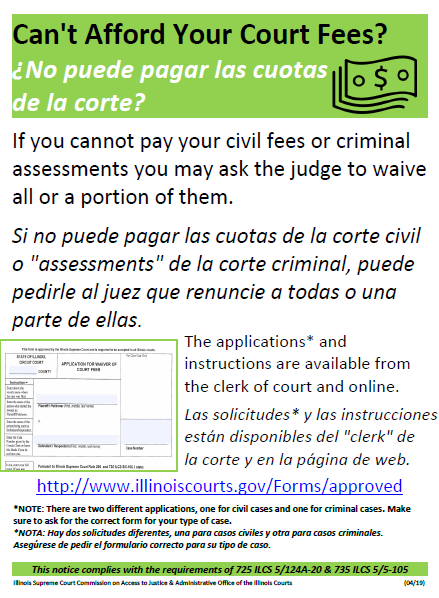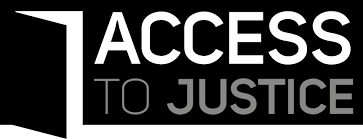By Jill Roberts, Access to Justice Division, Administrative Office of the Illinois Courts
Equal access to justice is a pillar of our society. The promise of equal justice for those without meaningful access is an ongoing and constantly evolving issue. Access is increasingly important as we see poverty grow statewide without a matched increase in free and low-cost legal aid services. Poverty in Illinois is at a 50-year high, with nearly one in three Illinois residents living in or near poverty (Heartland Alliance). At the same time, about a quarter of Illinois residents have limited English proficiency, higher than the national average (U.S. Census).
To ensure equal access, the Illinois Supreme Court created the Commission on Access to Justice (ATJ Commission) in 2012, under the auspices of the Access to Justice Division of the Administrative Office of the Illinois Courts (AOIC). The ATJ Commission’s mission is to promote, facilitate, and enhance access to justice with an emphasis on access to the Illinois civil courts and administrative agencies for all people, particularly the poor and vulnerable. Chaired by Justice Mary K. Rochford, the Commission is overseen by 11 Commissioners representing all five appellate districts.
In line with its mission, The ATJ Commission works on projects big and small across the state to streamline and simplify services, both for the judiciary and the public. Changes include creating easy-to-understand signage, implementing universal forms, simplifying language and changing administrative laws in the process. Any change made in the courts affects everyone involved from the judge to the administrative staff to the litigants. Systemic change is planned very carefully and involves the civil legal aid community, including funders and service.
Last year, the Illinois Legislature amended the civil fee waiver rule and created a criminal assessment waiver, both allowing for full or partial waivers. These changes required the Commission to update the civil waiver statewide forms and create criminal waiver forms. ATJ created educational materials including a judicial bench card for judges, an overview for court staff, and a Federal Poverty Level Chart that is updated annually, and conducts trainings wherever possible.
The public also needs to be educated on systemic change that impacts access. The Commission wants court patrons to understand their rights in asking for fee or assessment waivers. This change means that courts are statutorily required to post a sign about waivers in English and Spanish to inform litigants about the availability of waivers.

Making changes such as disseminating these small charts and informational materials to the judiciary and court staff will hopefully have an impact on millions of Illinois residents living in or near poverty who are attempting to access the court system.
The projects for the rest of 2020 center on the Illinois Strategic Agenda. The three initiatives the ATJ Commission are working on for year one of the Agenda are to (1) promote the increased use of remote appearances in civil cases, (2) enhance personal services provided to self-represented litigants in courts across Illinois to make courts more understandable, user-friendly, and accessible, and (3) publish standardized forms for litigants on small claims and eviction cases.
The Commission is proud to serve and improve the courts for the people of Illinois.


